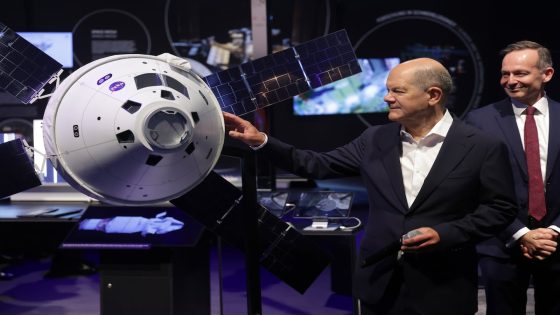Convicted rapist Steven van de Velde will make his Olympic debut on Sunday morning amid a background of controversy.
The decision of the Dutch Olympic Committee (NOC) to include the 29-year-old in the beach volleyball squad has led to criticism.
He will compete with playing partner Matthew Immers and their first match is scheduled to take place at 09:00 BST on 28 July against Italy’s Alex Ranghieri and Adrian Carambula at the Eiffel Tower stadium.
Kate Seary, co-founder and director of Kyniska Advocacy, which works for the protection and respect of women in sports, said: “His participation sends a message to everyone that sporting prowess trumps crime.”
However, Dutch chef de mission Pieter van den Hoogenband said: “He’s not going to downplay it [his conviction]. We have to respect that and help him as a member of the team to be able to perform.”
How did we get here?
Van de Velde was sentenced to four years in prison in 2016 after admitting three counts of rape against a 12-year-old British girl, which took place in August 2014.
The Dutchman, who met his victim on Facebook, travelled from Amsterdam to the UK and raped the girl at an address in Milton Keynes.
He resumed his volleyball career after serving just 12 months of his four-year sentence and was selected in June for the Dutch Olympic team for Paris.
In interviews with Dutch media previously Van de Velde said: “I can’t reverse it, so I will have to bear the consequences. It has been the biggest mistake of my life.”
What is the Dutch Olympic team’s stance?
The NOC said Van de Velde had returned to the playing arena “following a specialist treatment programme”.
It added: “Van de Velde has fully engaged with all requirements and has met all the stringent risk assessment thresholds, checks and due diligence. Experts have stated that there is no risk of recidivism.
“Van de Velde has consistently remained transparent about the case which he refers to as the most significant misstep of his life. He deeply regrets the consequences of his actions for those involved.”
In a statement to BBC Sport, it also said: “After his release, Van de Velde sought and received professional counselling. He demonstrated to those around him – privately and professionally – self-insight and reflection.”
Van den Hoogenband added: “He has participated in World Cups, European Championships and World Cups, but you see that around the Games it is different. Things are amplified around the Games.
“We have taken good steps together. All the athletes are dear to me and I try to support them.”
How is Van de Velde’s selection allowed?
The NOC says Van de Velde’s return to the sport met guidelines set by the Dutch Volleyball Federation (NeVoBo) in the organisation’s Guidelines Integrity Record, which sets out conditions for athletes to resume competing after conviction.
The International Olympic Committee (IOC) said the selection of athletes for the Games was the responsibility of individual committees – a stance reiterated by spokesman Mark Adams at a news conference in Paris.
“They have put out a statement, they’ve made it very clear there’s a lot of safeguarding going on, special extra safeguarding,” said Adams.
Van den Hoogenband said Van de Velde had been moved to alternative accommodation from the athletes’ village and would not be speaking to the media while in Paris.
What has been the reaction?
The Australian Olympics team chief Anna Meares has said a convicted rapist would not be picked by her country.
“If an athlete or staff member had that conviction they would not be allowed to be a member of our team,” Meares said.
“We have stringent policies on safeguarding within our team.”
Leading safe sport organisations the Sport & Rights Alliance Athletes Network for Safer Sports, The Army of Survivors, and Kyniska Advocacy have called for the IOC to disqualify Van de Velde from Paris 2024.
“Van de Velde’s presence on the Dutch Olympic team completely disrespects and invalidates the survivor of his crimes,” said Kyniska Advocacy’s Seary.
Julie Ann Rivers-Cochran, executive director of The Army of Survivors, added: “An athlete convicted of child sexual abuse, no matter in what country, should not be awarded the opportunity to compete in the Olympic Games.”
Joanna Maranhao, network co-ordinator of the Athletes Network for Safer Sports, said Van de Velde’s “participation is already causing further harm to people with lived experience”.
She added: “Athletes who compete at the prestigious level of the Olympic Games are often perceived as heroes and role models – Van de Velde should not receive this honour.”
Source Agencies

